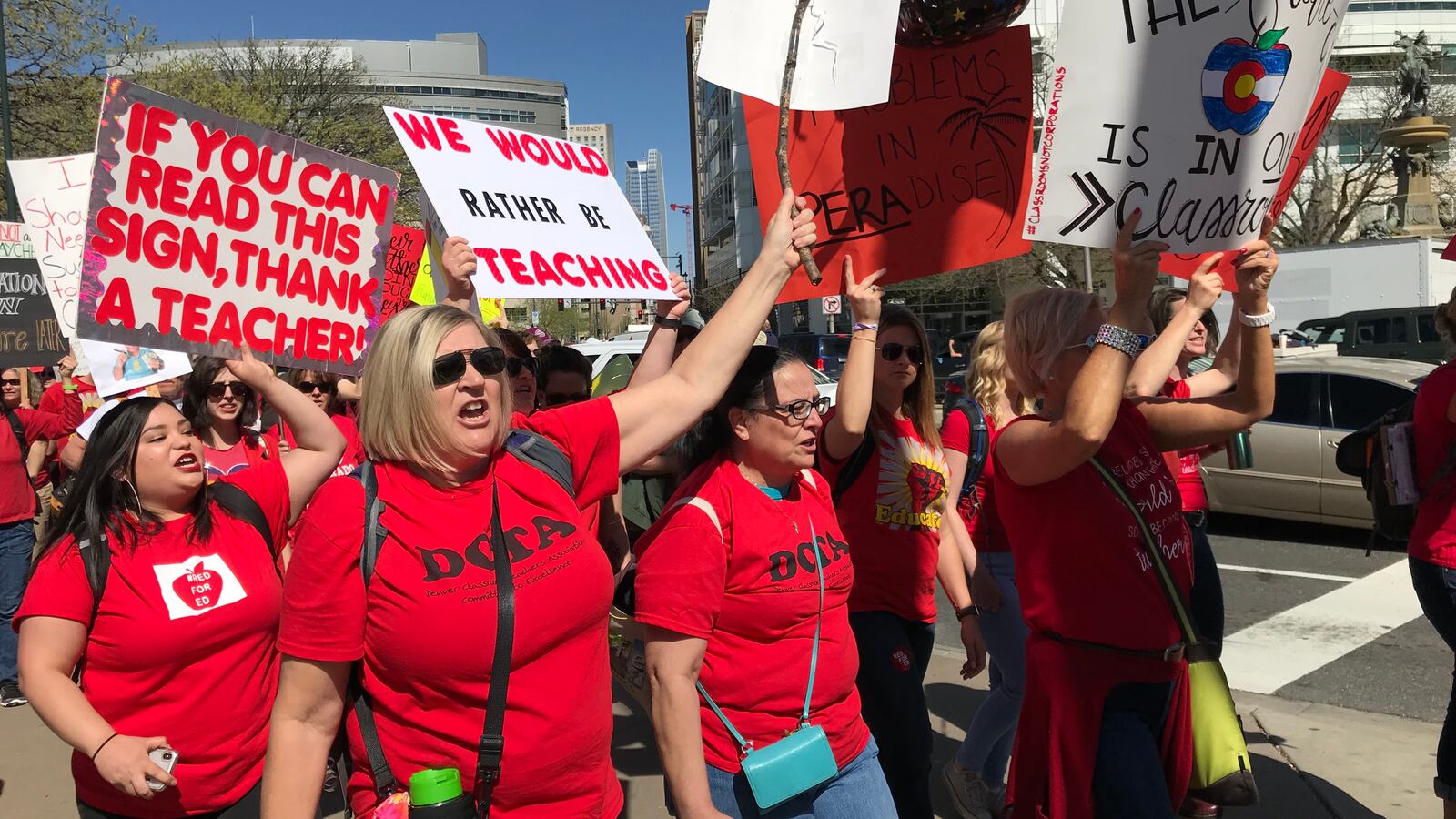Colorado’s second largest school district will cancel school on March 19 because so many teachers will be absent for a statewide teachers rally at the state Capitol building in Denver.
The 84,000-student Jeffco district made the announcement Wednesday, saying the number of expected teacher absences had exceeded the number that could be covered by substitutes.
Click here for a full list of Colorado school districts cancelling classes March 19.
In a letter to Jeffco families, district officials apologized for the inconvenience and said, “Please know we exhausted all resources before deciding to cancel school for students.”
District officials in Denver, the state’s largest district, said Wednesday they don’t have any “solid plans” in place to handle potentially large numbers of teacher absences on March 19, but hope to make a decision in the next few days. Leaders from the Adams 12 district, the state’s sixth largest, said they are monitoring teacher absences planned for the day of the rally and will give families advance notice if they have to cancel classes.
Three other large metro area districts — Aurora, Cherry Creek and Douglas County — will not be affected by the rally because they are off for spring break that week.
In 2018, several districts canceled classes or dismissed students early on three different days in April when Colorado teachers rallied at the Capitol.
The state teachers union, the Colorado Education Association, is organizing the “March on the Capitol” on March 19 to push for increased school funding. Specifically, the union is promoting legislation that would create a special pot of money to raise pay for teachers and other school district staff based on the cost of living in a particular district. The Senate Education Committee approved that bill in January.
The union also seeks a statewide ballot initiative for education and wants lawmakers to replace $570 million they held back from education to meet other obligations. This underfunding, known as the budget stabilization factor, is permitted because even though the state constitution requires education funding increases every year based on inflation and population, revenue declined during the Great Recession and lawmakers began diverting education dollars.
Colorado funds K-12 education at roughly $2,900 per student below the national average when regional cost differences are taken into account, and ranks 31st for teacher pay, according to figures collected by the National Education Association.
Clarification: This story has been updated to reflect that the legislation promoted by the union would also provide pay raises for some hourly workers in schools.

